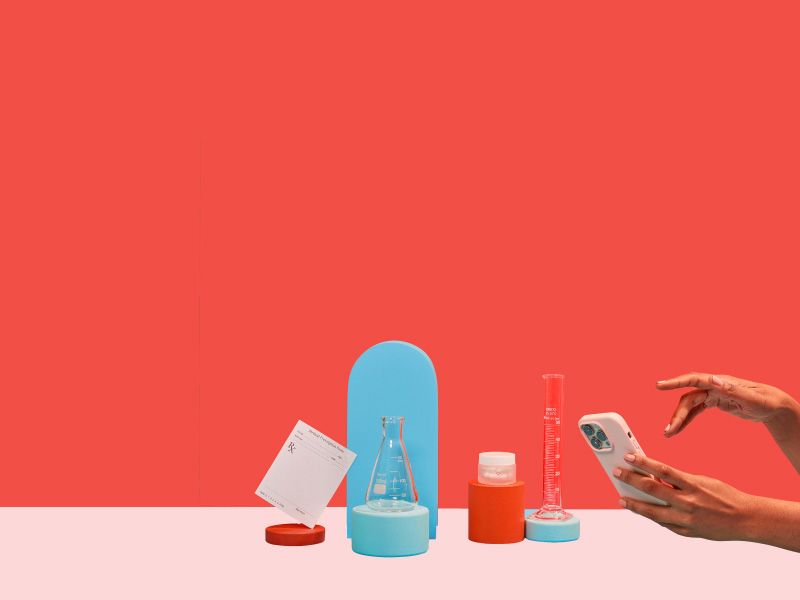
Which Major STD Isn't Part
of Normal Screening?
By Lizzie De la Cruz
February 26, 2020
So, you’ve just received a clean bill of health following an STD screening—that means you have no STDs, right?
Maybe.
Per recommendation by the Center for Disease Control, most states and medical institutions throughout the country do not screen for herpes, even when a patient asks to be “Screened for everything.” The CDC instead places emphasis on identifying diseases which cause individual harm and spread rapidly across the population when not treated—think chlamydia, HIV and gonorrhea.
Why Not Test For Herpes?
Other than among pregnant mothers, herpes poses no major health risks to those infected. Instead, the CDC’s approach, which seems at first counter-intuitive, attempts to fight off the stigma associated with having either version of the herpes virus. Stating that, “there is no evidence diagnosing genital herpes with a blood test in someone without symptoms would change their sexual behavior and stop the virus from spreading. In addition, without knowing the benefits of testing, the risk of shaming and stigmatizing people outweighs the potential benefits.”
Two types of viruses cause Genital Herpes: herpes simplex virus type-1 (HSV-1) and herpes simplex virus type-2 (HSV-2). The uncomfortable appearance of Oral Herpes—typically the result of HSV-1—is generally heralded by calling in sick from work...and life. Yet in many cases, the virus is contracted through non-sexual contact with saliva during childhood. The arrival of the virus in the host-body is permanent and will show in blood tests for the rest of your life, much like the chickenpox virus. In some cases, people who technically have the herpes virus in their blood never experience any symptoms.
So, without timing that STD-Screening in the presence of physical symptoms, i.e. sores around the mouth or genitals, your doctor cannot verify HSV-1 & HSV-2 without the high-risk of returning a false positive result. Again, the CDC’s approach here seeks to prevent any stigma from forming when a patient hears the news.
Following a false-positive diagnosis, it is easy to imagine the circle of blame and frustration one may feel digging back into a sexual history, frustratingly looking for clues, and perhaps needlessly suffering.
So What Happens If I think I have An Outbreak?
In general, good sexual health maintenance means getting tested regularly and having honest conversations with your partner about sexual history. If you partner has sores on their mouths or genitals, avoid contact until they clear completely. If sores all of a sudden appear around your mouth or genitals, avoid bodily contact until symptoms clear. If you have an outbreak, you should seek medical attention—this is a perfect time to get an STI screening.
Today, adults receive effective and immediate antiviral medications, which when taken within the first 48 hours of symptoms, are shown to prevent or greatly reduce visible and physical symptoms and pain.
It is important to emphasize the reality that sexually active individuals, from adolescence to late adulthood, may experience a herpes outbreak and not know it.
Particularly, sores around the genitals go un-diagnosed and are lost amidst the general virus-like symptoms which often accompany outbreaks.
Is There Clarity? Sort Of...
If you have never experienced an outbreak around the mouth or genitals, it is difficult to be certain you are carrying the herpes virus simply through a standard STI screening. However, important consideration still applies to your sexual behavior, same as that of any sexually active individual.
The really important piece of awareness to keep in mind is that not every initial herpes outbreak leads to diagnosis—it may not even produce severe or painful symptoms. Unless you see a doctor during the period of physical exposure it will be difficult to deliver any sort of accurate diagnosis.
If you suffer from chronic cold sores, it is recommended to keep antiviral meds on hand for use in minimizing pain and physical symptoms before returning to sexual activity.
What Do I Do if I Have Herpes, or Desperately Want to Avoid It?
Pretty much the same thing you should always be doing, whether in a relationship or single: make safe choices on behalf of your health. And know that if you ask your partner whether they have been screened for every STD, that they themselves may not be certain about the HSV-1 or HSV-2 viruses. Planning sexual contact with proper consideration for the outcome is the best bet for mitigating Herpes exposure. This is how individuals in monogamous relationships may avoid contracting the virus from their partner.
But, if you end up in the boat with the 40% of Americans carrying HSV-1/HSV-2, it is best to have a protocol. Talk with your medical provider to design a personalized treatment plan that helps you contain symptoms and live a healthy life.
With effective treatment options available, it’s time to broaden the conversation. People fear what they do not understand. Educating people on how to identify, treat, and prevent the spread of the virus is the only way to reduce the stigma that exists around herpes.
Get Herpes Medication Online

Valacyclovir & Acyclovir For HSV-2
Starting at $10/ month
Prescription antiviral pills used to prevent & treat outbreaks

Acyclovir Cream for Genital Herpes | HSV-2
Starting at $30
Prescription antiviral cream used to decrease outbreak healing time.

The Duo | HSV-2
Starting at $45
Bundle Valacyclovir & Acyclovir For HSV-1 & HSV-2 and Acyclovir 10% Topical Cream to treat & prevent outbreaks.

Lidocaine-Amitriptyline Cream | HSV-2
Starting at $30
Prescription cream used to relieve outbreak pain.


